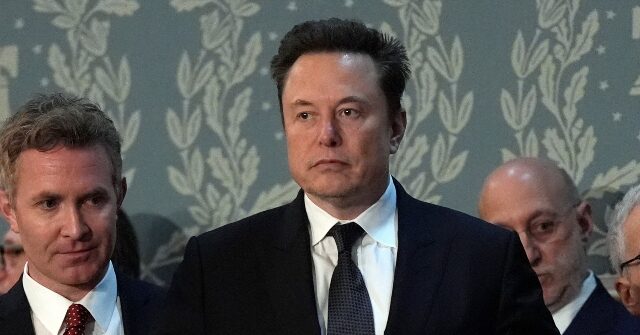On a recent episode of MSNBC’s “Katy Tur Reports,” Senator Chris Murphy (D-CT) raised critical concerns regarding the effectiveness of the Department of Government Efficiency, which appears to have come under scrutiny for its role in managing government spending. Murphy specifically criticized the choose of Elon Musk to steer this initiative, arguing that Musk’s considerable wealth has been primarily accrued through government subsidies. He emphasized the need for Democrats to not only challenge Musk’s financial gains but also the broader practices of large corporations, like insurance and defense companies, that benefit significantly from taxpayer dollars. Murphy articulated a sentiment that aligns with a desire for accountability and efficiency in government spending, suggesting a targeted approach towards those who profit from public funds rather than a blanket strategy that overlooks the true beneficiaries.
Murphy’s skepticism towards Musk’s appointment arises from the belief that placing a billionaire in charge of government expense decisions may lead to a protectionist agenda, rather than one that serves public efficiency. He characterized Musk’s influence as potentially detrimental to genuine reform, asserting that it could result in the safeguarding of Musk’s interests while sidelining competitors. This concern reflects a broader trend amongst progressive lawmakers who advocate for policies that prioritize the distribution of resources in a manner that directly benefits the public, rather than reinforcing the status quo that favors the wealthy. By centering the conversation around government accountability and efficiency, Murphy articulates a fundamental friction between the interests of the elite and the needs of everyday citizens.
Expanding on his critique, Murphy called out the overarching themes of government subsidy dependency and the obligation of lawmakers to scrutinize how public resources are allocated. He underscored the importance of Democrats taking active roles in addressing these issues by challenging corporate practices that exploit governmental support. The senator suggested a shift in focus from billionaires like Musk to systemic issues within the insurance and pharmaceutical sectors, which he believes are profiting unreasonably from government resources. This pivot towards examining corporate contributions to the inefficiencies within government serves a dual purpose: it not only opens the door for broader discussions about fiscal responsibility but also aligns with the Democratic Party’s traditional values of equity and social justice.
Murphy’s comments highlight a growing discontent within the Democratic Party regarding the intersection of wealth, power, and government influence. Many within the party are urging a reevaluation of how influential figures, particularly billionaires heavily reliant on government funding, participate in shaping policy. The senator’s remarks reflect a call to action for Democrats to realign their strategy towards a more equitable distribution of resources, urging them to leverage their legislative power against those entities profiting off taxpayer backs. This line of reasoning reinforces the notion that financial accountability must be a priority for lawmakers dedicated to progressing toward robust reforms.
Furthermore, the senator addressed the notion that the Department of Government Efficiency may lack substance in implementing substantial reforms, potentially reducing it to a mere “publicity stunt.” Such sentiments resonate with a broader audience frustrated with perceived ineffectual government initiatives that fail to deliver on their promises. By highlighting the possible superficiality of efforts like DOGE, Murphy encourages a dialogue centered around efficacy and practicality rather than illusionary gestures that do not substantially impact the working class. His stance emphasizes the necessity for transparency and dedicating government resources to areas that yield tangible benefits for the community rather than enriching private interests.
In conclusion, Senator Murphy’s critique of the Department of Government Efficiency and the role of billionaires in government spending underscores an urgent need for Democrats to reassess their strategies in the face of systemic corporate influence. By advocating for a focus on accountability and efficiency, the senator calls for a collective effort to address the inequalities perpetuated by the existing order. There is a clear demand for policies that should prioritize the needs of citizens over protecting the interests of wealthy individuals. The conversation initiated by Murphy and echoed by like-minded Democrats could serve as a foundation for more meaningful discussions about reforming government practices to ensure they serve the public’s best interests. As such, the dialogue surrounding these issues will be pivotal in shaping future policies and restoring faith in governmental institutions.

